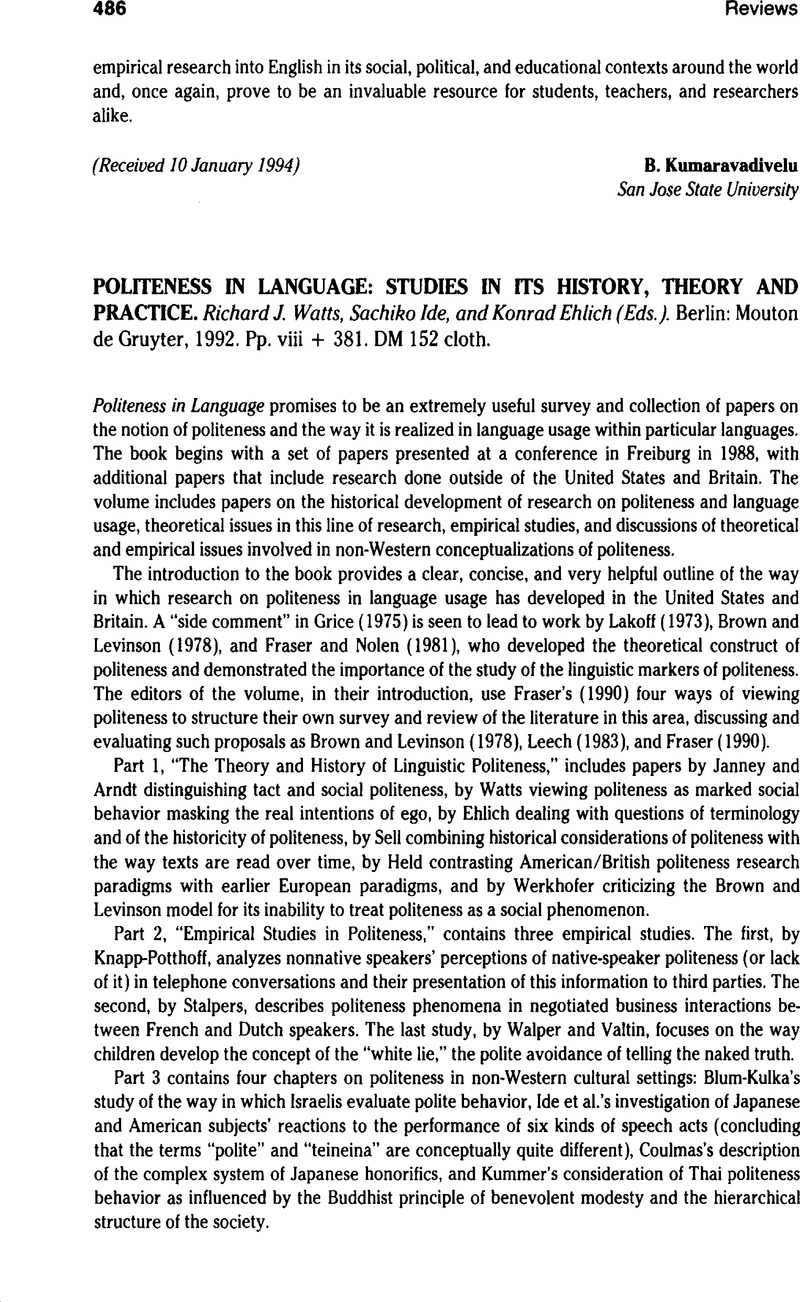Crossref Citations
This article has been cited by the following publications. This list is generated based on data provided by Crossref.
Mitchell, Nathaniel
2015.
Interdisciplinary Perspectives on Im/politeness.
Vol. 14,
Issue. ,
p.
121.
Luchkina, Tatiana
2015.
Interdisciplinary Perspectives on Im/politeness.
Vol. 14,
Issue. ,
p.
7.
Sharevski, Filipo
Treebridge, Paige
and
Westbrook, Jessica
2019.
Manipulation of perceived politeness in a web-based email discourse through a malicious browser extension.
p.
31.





